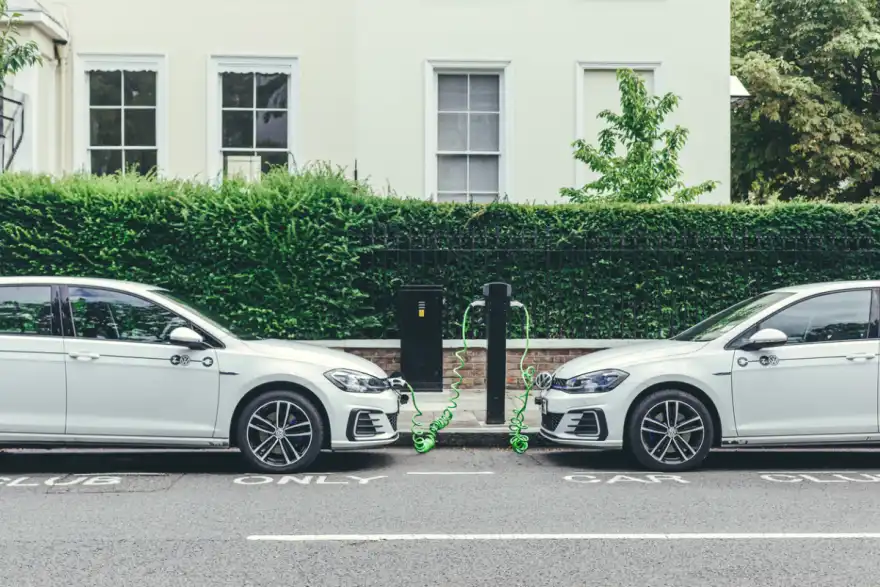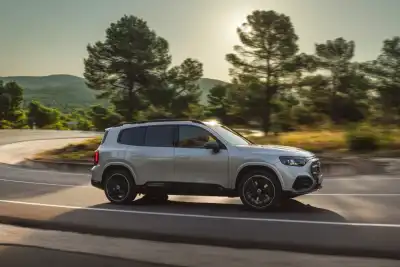
Electric car sales hit a record high in 2024, with nearly 20% of all new cars sold being fully electric, according to official data from SMMT. However, the government’s target of 22% electric vehicle (EV) sales, set under the Zero Emissions Vehicles (ZEV) Mandate, wasn't quite reached.
Car manufacturers who miss this target face hefty fines of £15,000 per vehicle. But there are ways to avoid penalties, such as trading credits with other manufacturers who exceeded their targets or borrowing credits from future years.
The government, though, is confident no fines will be imposed in 2024, thanks to the option of offsetting EV sales with lower CO2 emissions from the rest of their car sales, as per the Mandate's flexibilities.
A Department for Transport spokesperson emphasised “December has yet been another record month for new electric cars, with nearly one in three of all vehicles sold battery electric and 382,000 EVs sold across 2024.
“Thanks to the flexibilities in the ZEV Mandate, we’re confident the whole market will comply with our overall ZEV Mandate targets and that no car manufacturer will need to pay fines.
“We’ve invested over £2.3 billion to support industry and consumers make the switch, rolled out more than 72,000 public chargers, and launched a consultation to invite the sector to shape how we achieve the transition to ZEVs.
“Getting this transition right as more people make a switch to electric vehicles will support the growth of the market in the UK and will provide an opportunity to tap into a multibillion-pound industry that will create high paid jobs for decades to come.”
However, Mike Hawes, CEO of SMMT, points out that “It has cost manufacturers in excess of £4 billion in discounting in the UK last year alone,”
“This is unsustainable and, with the 2025 market looking under even greater pressure, it is imperative we get an urgent resolution.”
This year, the target increases to 28%, a goal Hawes believes will be nearly impossible to achieve without government support.
In response, the SMMT and the wider automotive industry are urging the government to reconsider its targets or fines. They are also pushing for incentives to encourage more buyers to go electric. On Christmas Eve, the government announced it would be consulting on the ZEV Mandate and the proposed ban on some petrol and diesel models by 2030. The consultation will close on February 18, with responses expected by mid-May.
Hawes is calling for quick action to clarify the ZEV Mandate targets, but given the time needed to process responses, he fears there will be little certainty until the end of the year. To stimulate EV sales, SMMT has suggested halving VAT on new electric cars for the next three years, which they believe would add 250,000 extra sales. They’re also advocating for reduced VAT on public EV charging to match the 5% currently applied to home charging.
Another major issue is the uneven distribution of charging infrastructure. Nearly half of all public charge points are in London and the southeast, which makes EV adoption outside these areas harder. Hawes argues that charging infrastructure needs to match the growth in car sales, especially as more cars are sold outside of London.
In 2024, petrol cars still dominate the market, making up 52% of new car registrations, while diesel cars accounted for just 6.3%. Hybrids and plug-in hybrids grew in popularity, with their combined market share increasing by 27%. Fleet sales, including business purchases, helped boost the market, while private car sales actually dropped below 2020 pandemic levels, reaching just 746,000 units.
There’s some uncertainty about the actual number of cars reaching private buyers, as many cars are registered as fleet sales through leasing or government-supported schemes. Hawes attributes private buyers' hesitation to confusion over vehicle choices and mixed government messaging.
The top-selling brands in 2024 were Volkswagen, BMW, Audi, Kia, and Ford, which saw a decline in overall sales despite the success of the Ford Puma. Ford’s Puma and Tesla’s Model Y were the best-selling models, and SUVs became the UK’s most popular car type, overtaking superminis for the first time.
Looking ahead to 2025, without additional government incentives, SMMT predicts only a slight increase in car sales, with total registrations expected to reach 1.97 million. EV sales are projected to increase to 24%, still falling short of the government’s 28% target.




